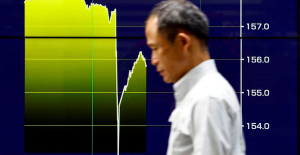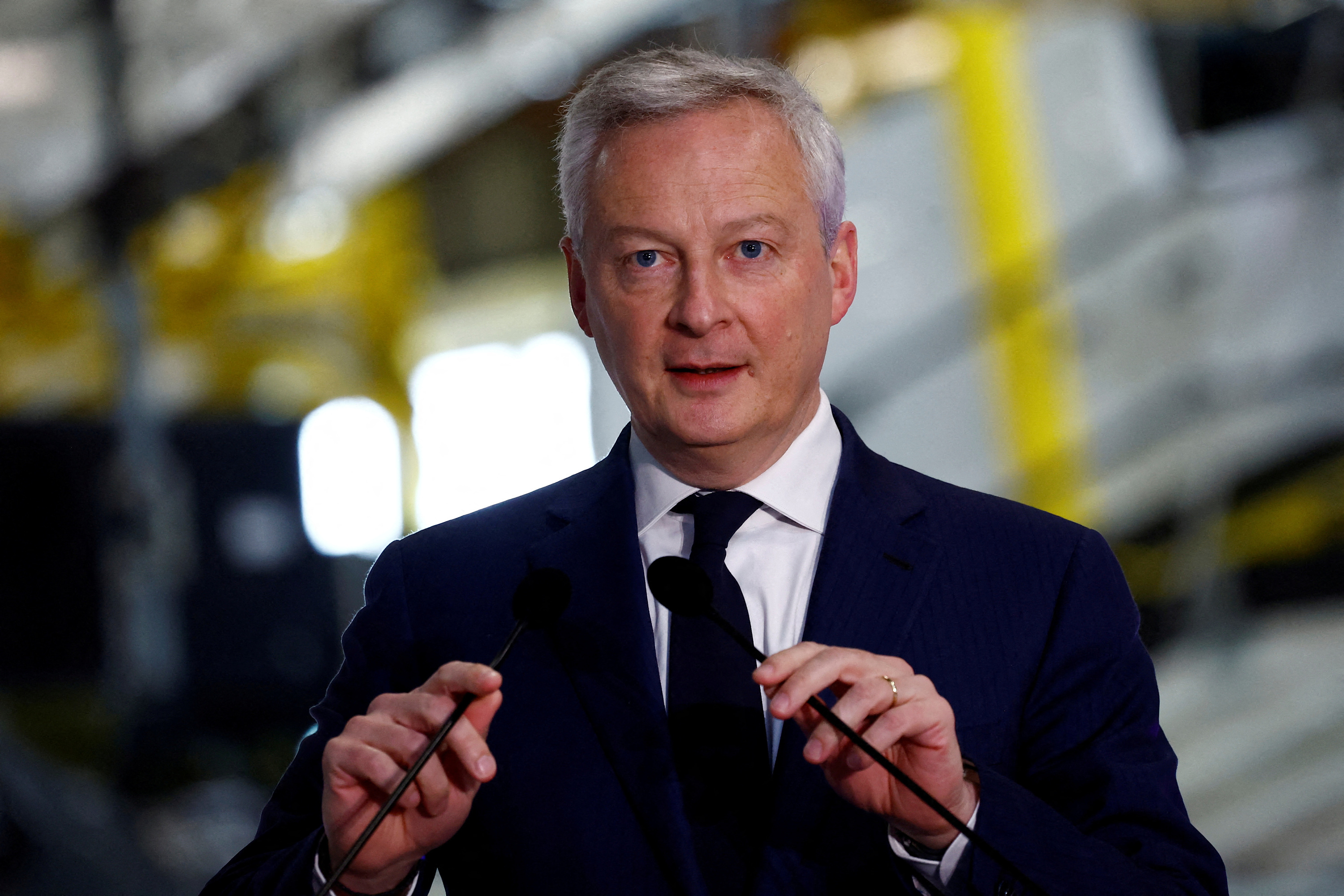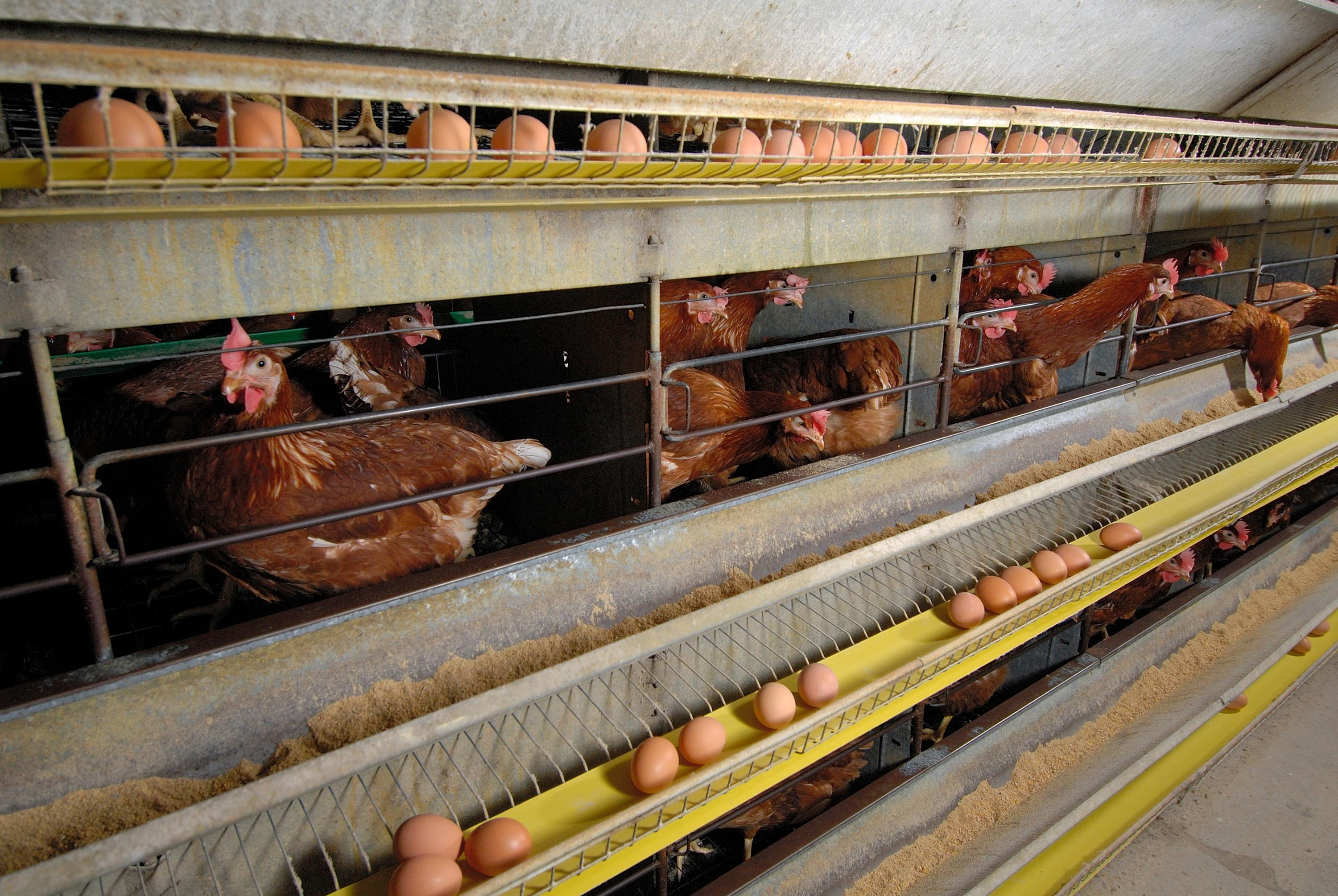The Volkswagen Group has significantly downsized its controversial plant in the Chinese Uyghur province of Xinjiang. There has been a "change in the business model," said VW China boss Ralf Brandstätter in Beijing. Instead of assembling vehicles as before, only the “final commissioning process” now takes place in the factory.
The number of employees has fallen from almost 700 to 240 people. According to Brandstätter, he was the first VW top manager in several years to visit the plant in the provincial capital of Ürümqi on February 16 and 17.
The plant in the far west of China has been under international criticism for years. Because in Xinjiang, the communist regime is brutally taking action against the Muslim Uyghur ethnic group, which is at home there.
Hundreds of thousands of Uyghurs have been detained in re-education camps and subjected to forced labor, according to human rights groups like Amnesty International. The Office of the UN High Commissioner for Human Rights also published a report in 2021 denouncing serious government violations against its own population.
Against this background, the plant is a burden for the VW Group. It was opened in 2012 when Beijing, as part of the "New Silk Road" initiative, took a closer look at the west of the country and promised economic growth there.
At that time, the relationship between Germany and China was different. "The project was highlighted very prominently at the end of April 2012 by a visit by the then Chancellor Angela Merkel and the Chinese Prime Minister Wen Jiabao to Wolfsburg," said Thomas Steg, VW's chief lobbyist.
"Expectations were high with a view to Ürümqi's development potential on the historic Silk Road."
But things changed in 2015. After a deadly attack by Uyghur jihadists, the leadership in Beijing passed anti-terror laws and embarked on the course of suppression against the population group that has continued to this day.
Since then, Xinjiang has been virtually inaccessible to human rights lawyers and journalists. And a problem for the VW Group.
Measured against the size of the group, the plant is economically meaningless. According to Brandstätter, 10,000 cars are to be delivered from there this year; the wagons arrive practically ready from other factories and are only prepared for trade.
"The number of employees is sufficient for this process, we are not planning any new hires," said the manager. Originally, the factory was designed for 50,000 cars per year.
Politically, the significance of the work is all the greater. "I too am very concerned about reports of human rights violations in the region," said Brandstätter. "But we have no evidence of human rights violations at the plant."
During his visit, he "found no contradictions" compared to the data and reports he had received so far. During the day and a half in Ürümqi, Brandstätter toured the entire plant, ate in the canteen and had one-to-one meetings with seven employees.
Unsurprisingly, these workers were content with their situation. All employees of the plant are permanent and have been with the company for at least four years, three quarters for eight to ten years.
Simultaneously with Brandstätter's visit to Xinjiang, human rights violations by the Chinese in the province were discussed at a meeting of a UN commission in Geneva. Before the Committee on Economic, Social and Cultural Rights at the High Commissioner for Human Rights, the Chinese representative defended his government's actions against the Uyghurs.
The "vocational training centers" in the Xinjiang region are not detention centers or places for forced labor, but schools that de-radicalize trainees. There, people would be "trained" who would have "participated in minor terrorist activities" that did not constitute criminal offenses. Independent observers see things very differently.
Despite the problems, it is clear to Volkswagen that they will not withdraw from the region. This is also due to the legal structure behind the factory. The plant is operated by a subsidiary of the joint venture company SAIC-Volkswagen. This, in turn, is one of the large joint ventures that carry VW's business in China; it is owned 50 percent by each of the partners involved.
The Chinese are in the lead. SAIC is a state-owned company from Shanghai that also builds and sells cars under its own brands - and thus competes with Volkswagen. It is politically important for SAIC to support the government's "Go West" strategy, so it will certainly not say goodbye to Xinjiang.
With this structure, VW tries to differentiate itself from the factory. Steg emphasized that the plant is operated by the subsidiary of a joint venture. "Decisions of the joint venture must be made unanimously."
Brandstätter formally visited the factory as a member of the supervisory board of SAIC-VW. There are also VW representatives on the factory operator's supervisory board. The informal structures and the influence of the communist party in the company network cannot be judged from the outside.
How far does the VW Group's responsibility for the factory in the Uyghur province really extend? Steg questioned whether the German Supply Chain Due Diligence Act applies to this non-self-controlled holding at all.
The Chinese company in Xinjiang only delivers cars within the region. The plant does not have suppliers from the region – who may use forced labor – as only finished vehicles are delivered from SAIC VW factories.
In December, a study by Britain's Sheffield Hallam University found that the growing Chinese subcontracting industry operates a large number of plants in Xinjiang. These are not regularly visited by western top managers.
"Everything on shares" is the daily stock exchange shot from the WELT business editorial team. Every morning from 7 a.m. with the financial journalists from WELT. For stock market experts and beginners. Subscribe to the podcast on Spotify, Apple Podcast, Amazon Music and Deezer. Or directly via RSS feed.

 What is chloropicrin, the chemical agent that Washington accuses Moscow of using in Ukraine?
What is chloropicrin, the chemical agent that Washington accuses Moscow of using in Ukraine? Poland, big winner of European enlargement
Poland, big winner of European enlargement In Israel, step-by-step negotiations for a ceasefire in the Gaza Strip
In Israel, step-by-step negotiations for a ceasefire in the Gaza Strip BBVA ADRs fall almost 2% on Wall Street
BBVA ADRs fall almost 2% on Wall Street Sánchez cancels his agenda and considers resigning: "I need to stop and reflect"
Sánchez cancels his agenda and considers resigning: "I need to stop and reflect" The Federal Committee of the PSOE interrupts the event to take to the streets with the militants
The Federal Committee of the PSOE interrupts the event to take to the streets with the militants Repsol: "We want to lead generative AI to guarantee its benefits and avoid risks"
Repsol: "We want to lead generative AI to guarantee its benefits and avoid risks" Osteoarthritis: an innovation to improve its management
Osteoarthritis: an innovation to improve its management The yen jumps 3% then falls again, amid speculation of Japanese intervention
The yen jumps 3% then falls again, amid speculation of Japanese intervention A very busy Friday on the roads of Île-de-France before the Ascension Bridge
A very busy Friday on the roads of Île-de-France before the Ascension Bridge Fraud: the government is preparing new measures for the fall
Fraud: the government is preparing new measures for the fall Nike breaks the bank to keep the Blues jersey
Nike breaks the bank to keep the Blues jersey Madonna ends her world tour with a giant - and free - concert in Copacabana
Madonna ends her world tour with a giant - and free - concert in Copacabana Harry Potter: Daniel Radcliffe “really saddened” by his final breakup with J.K. Rowling
Harry Potter: Daniel Radcliffe “really saddened” by his final breakup with J.K. Rowling Leviathan, New York Trilogy... Five books by Paul Auster that you must have read
Leviathan, New York Trilogy... Five books by Paul Auster that you must have read Italy wins a decisive round against an American museum for the restitution of an ancient bronze
Italy wins a decisive round against an American museum for the restitution of an ancient bronze Omoda 7, another Chinese car that could be manufactured in Spain
Omoda 7, another Chinese car that could be manufactured in Spain BYD chooses CA Auto Bank as financial partner in Spain
BYD chooses CA Auto Bank as financial partner in Spain Tesla and Baidu sign key agreement to boost development of autonomous driving
Tesla and Baidu sign key agreement to boost development of autonomous driving Skoda Kodiaq 2024: a 'beast' plug-in hybrid SUV
Skoda Kodiaq 2024: a 'beast' plug-in hybrid SUV The home mortgage firm rises 3.8% in February and the average interest moderates to 3.33%
The home mortgage firm rises 3.8% in February and the average interest moderates to 3.33% This is how housing prices have changed in Spain in the last decade
This is how housing prices have changed in Spain in the last decade The home mortgage firm drops 10% in January and interest soars to 3.46%
The home mortgage firm drops 10% in January and interest soars to 3.46% The jewel of the Rocío de Nagüeles urbanization: a dream villa in Marbella
The jewel of the Rocío de Nagüeles urbanization: a dream villa in Marbella Europeans: a senior official on the National Rally list
Europeans: a senior official on the National Rally list Blockade of Sciences Po: the right denounces a “drift”, the government charges the rebels
Blockade of Sciences Po: the right denounces a “drift”, the government charges the rebels Even on a mission for NATO, the Charles-de-Gaulle remains under French control, Lecornu responds to Mélenchon
Even on a mission for NATO, the Charles-de-Gaulle remains under French control, Lecornu responds to Mélenchon “Deadly Europe”, “economic decline”, immigration… What to remember from Emmanuel Macron’s speech at the Sorbonne
“Deadly Europe”, “economic decline”, immigration… What to remember from Emmanuel Macron’s speech at the Sorbonne These French cities that will boycott the World Cup in Qatar
These French cities that will boycott the World Cup in Qatar Mercato: Verratti at Barça? A track studied
Mercato: Verratti at Barça? A track studied Rugby: after the defeat during the Six Nations, the Blues will meet the English in September for a test match
Rugby: after the defeat during the Six Nations, the Blues will meet the English in September for a test match Premier League: Liverpool unveils its new jersey for next season
Premier League: Liverpool unveils its new jersey for next season Formula 1: Alpine holds its new executive technical director
Formula 1: Alpine holds its new executive technical director


















